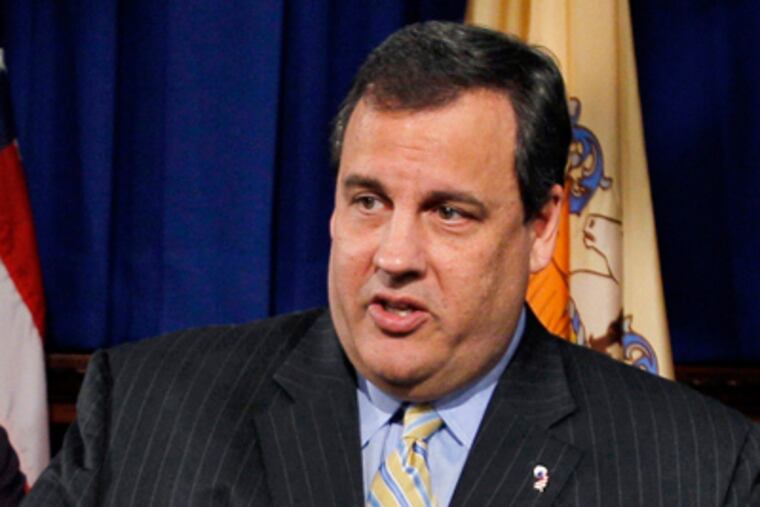Christie 'skeptical' on man's role in global warming
Scientists and environmental advocates reacted with anger and incredulity Wednesday to remarks by Gov. Christie expressing doubt that humans are causing climate change.

Scientists and environmental advocates reacted with anger and incredulity Wednesday to remarks by Gov. Christie expressing doubt that humans are causing climate change.
"I'm skeptical," Christie said at a Toms River town hall meeting Tuesday in response to a question about whether he believed mankind played a major role in global warming.
"I think we're going to need more science to prove something one way or the other," he said.
Christie said he had seen convincing arguments on both sides of the issue but "can't figure this stuff out."
The governor had previously focused his comments regarding energy policy on creating green jobs and reducing dependency on foreign oil.
Critics reacted with shock Wednesday and accused Christie of pandering to a conservative base as he raises his national political profile.
Spokesman Michael Drewniak said Wednesday that Christie believed climate change could have damaging effects, but he offered no insight into what the governor believes are its causes.
Paul Falkowski, director of the Rutgers Energy Institute, said he was puzzled by Christie's comments and offered to show him data, such as a 2008 report from the Intergovernmental Panel on Climate Change that demonstrates that humans are affecting the climate.
Comments such as Christie's make it seem as though scientists are deliberately misleading the public, said Falkowski, a National Academy of Sciences member.
"This shouldn't be a political issue," he said. "It should be simply an issue of evaluating the science."
Christie's comments were "Bushesque," said Senate President Stephen Sweeney (D., Gloucester). Former President George W. Bush took a noncommittal stance on human influence on climate, particularly in the early years of his presidency.
During an appearance Sunday on NBC's Meet the Press, Christie left the door open to a possible 2016 presidential bid. Christie may be jockeying for the favor of conservatives to prepare for that campaign, Sweeney said.
Drewniak said in an e-mail that was "far too deep a reading of [the governor's] remarks."
David Pringle, campaign director of the New Jersey Environmental Federation, said he hoped Christie had not changed his position on climate issues. His organization endorsed Christie last year and continues to support him in opposing offshore oil drilling, the construction of liquefied natural gas terminals, and a proposed coal-fired power plant in Union County.
"We hope that what's been reported isn't the full story and that more information comes out quickly," he said.
Pringle said Christie had been a strong proponent of renewable energy and that his organization was waiting to see how Christie tackles a legislative mandate to curb the state's greenhouse gases.
"Those things matter much more than what he does or doesn't say off the cuff," Pringle said.
The head of the New Jersey Sierra Club, Jeff Tittel, was less forgiving. He pointed to cuts the administration made to clean-energy funds and the Department of Environmental Protection.
Christie is moving right to gain support of tea-party groups, which made their opposition to cap-and-trade climate policy a campaign issue this fall, he said.
"The only science the governor is paying attention to is political science," Tittel said.
Phil Kerpen, vice president for policy at the conservative Americans for Prosperity, said he hoped Christie's comments indicated he would join efforts to remove New Jersey from a 10-state program to curb carbon emissions by power plants.